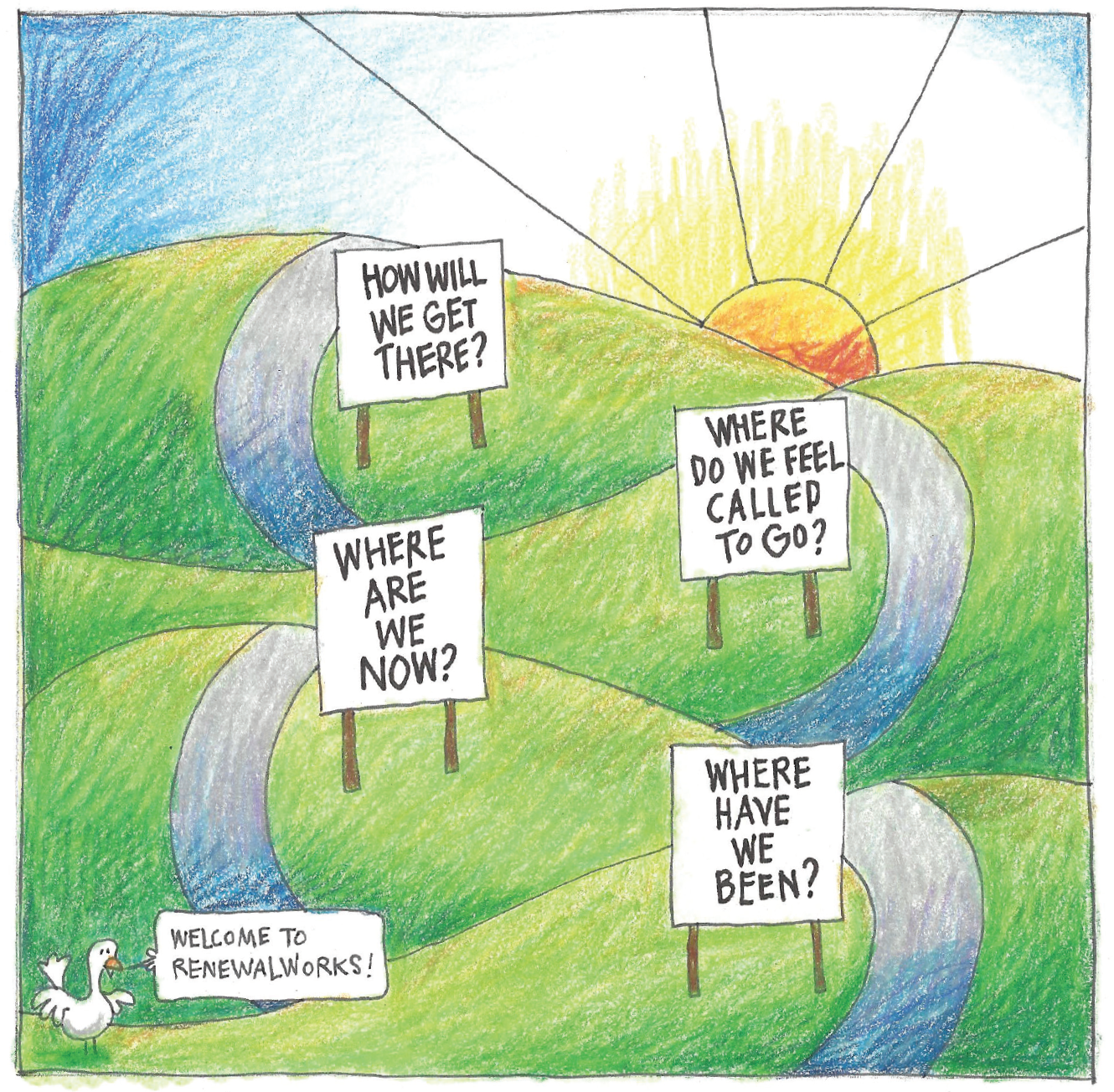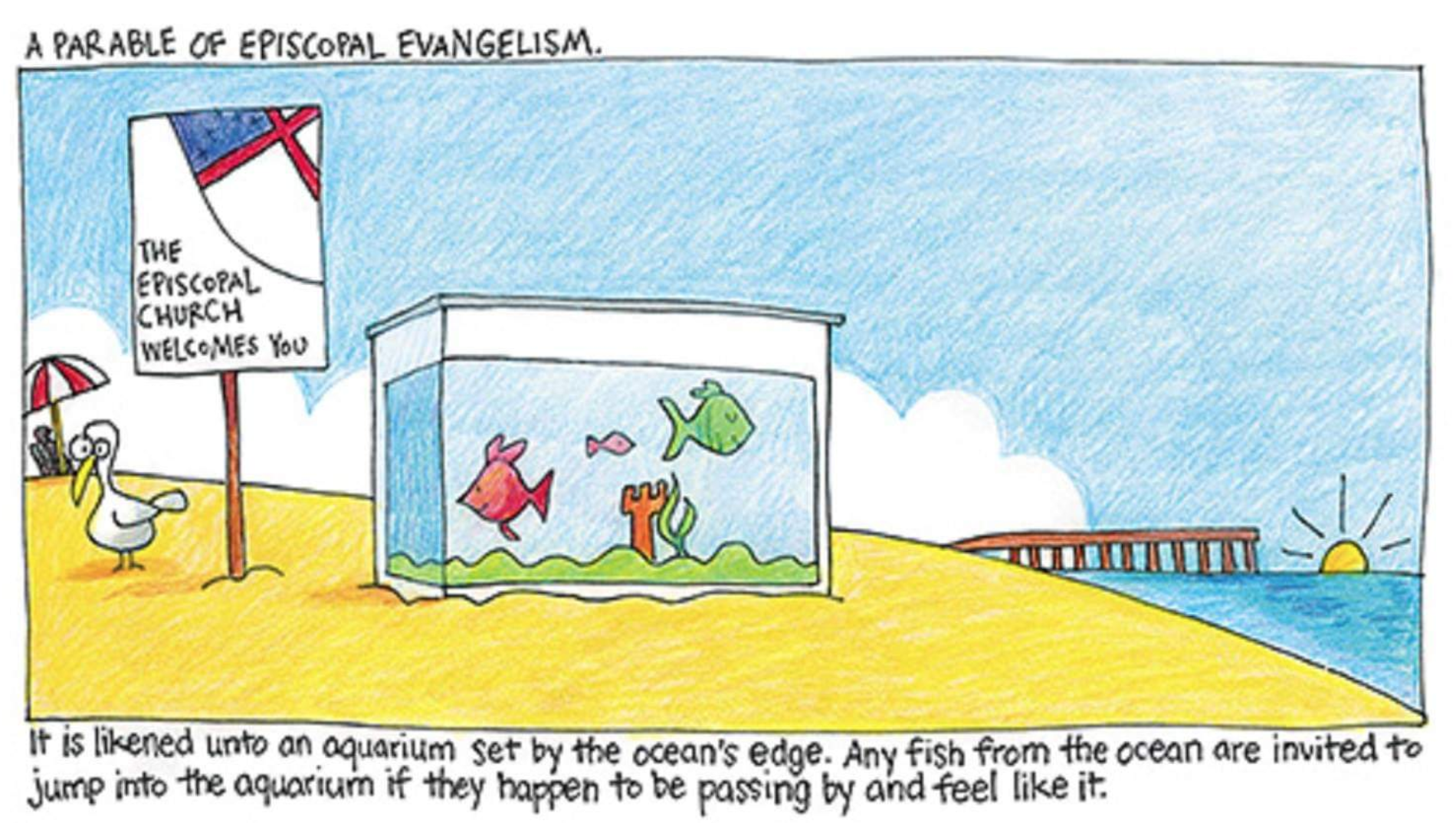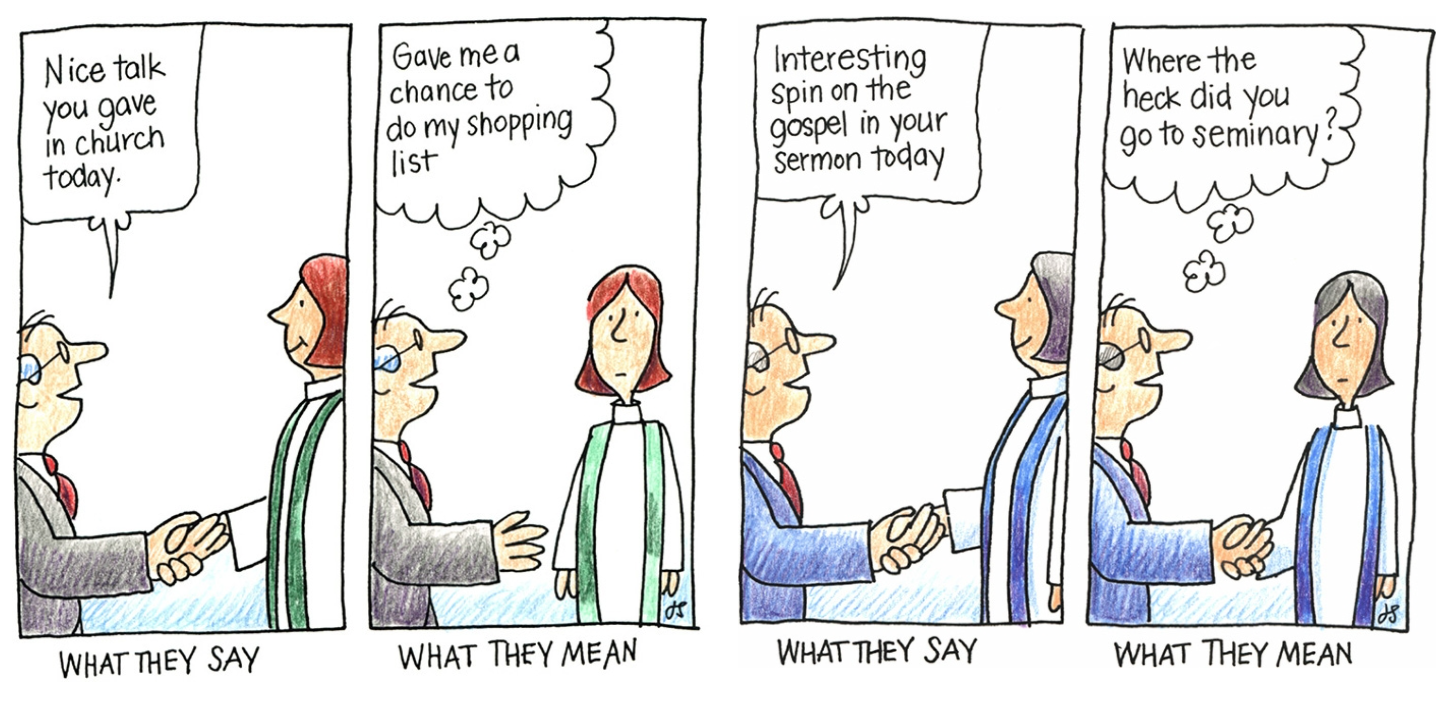
|
Do good
Those of a certain age may remember a scene from “Sound of Music” when the Von Trapp children have been hazing the new governess, Maria (Julie Andrews) on her first day. They were so mean. When they all sit down for dinner, Maria is invited to say grace, a prayer during which she references the unusual ways she has been welcomed into the household. One by one, the children dissolve into tears of shame. A classic example of what I’ve heard described as horizontal prayers.
Such prayers sound something like this: “Lord, I pray that my sibling will stop being such a jerk.” “Lord, I pray that this particular vestry member will have the humility to see how ill-informed his opinion is.” “Lord, I pray that all of us around this dinner table will come to appreciate the Christian point of view on (name the social issue).” You get the idea. It seems that according to Jesus, people using prayer (or any religious practice) in this way is one mark of hypocrisy, masking our own agenda behind piety, bless their hearts.
These days, I hear all kinds of reasons why folks don’t go to church, why there has been a dramatic increase in the number of nones (no religious affiliation) and dones (those who have bailed). I can see reasons why organized religion loses appeal.
Presiding Bishop Michael Curry, recently commissioned a survey to explore what people think about Jesus. It’s called the “Jesus in America” study. He said of this study: “We are encouraged that the research shows Americans still find Jesus compelling (editorial comment: phew!) but we also see that the behavior of many of his followers is a problem, and it’s not just certain Christians. It’s all Christians.”
The study included questions about what people think about the church. Christian respondents described Christians as giving, compassionate, loving, and respectful. Non-Christians had a different perspective. The characteristics they identified were judgmental, self-righteous, arrogant and, you guessed it, hypocritical. This squares with one of the most common reasons people tell me they have given up on church. They say that they don’t go to church because it’s just filled with hypocrites. To which I respond: “Guilty as charged.”
Jesus spent a lot of time contending with hypocrites. A lot of his most charged exchanges were with really religious people. That should give pause to those of us who are clergy, among others. As a result, the really religious people of Jesus’ day were among those who worked hardest to get rid of him.
As I try to understand and embrace his teaching, I sense his fundamental desire for people to have a deep and authentic relationship with God, a relationship that would be sustaining and joyful. I think he recognized that one of the things that get in the way is worrying about how we come off, how we appear, what other people think of us. I’m not sure it’s possible for us to avoid that.
But perhaps it’s possible if we try his experiment, taking our prayers to some quiet place where we get to realize that prayer is simply a conversation between us and God (an amazing, miraculous privilege when you think about it). It’s similar to the experiment we explored last week, giving alms/doing good in secret, in privacy, so we can be liberated from public opinion, so we can be liberated from the seductive power of our own ego. (After all, we can think of ego as an acronym: edging God out.)
All of it is a way for us to come to a deeper relationship with God, which is key not only to love of God, but also key to love of neighbor, and ultimately key to love of self. Grab some quiet prayer time this week. See what happens.
RenewalWorks: Connect is an online conversation series presented by RenewalWorks to hear from thought-leaders exploring ways to continue the work of spiritual growth. These discussions are especially helpful for those who have participated in RenewalWorks, but anyone interested in cultivating spiritual growth is encouraged to join.
A Story of Transformation
|
We hope you will join us to hear how one church’s focus on spiritual growth has transformed its congregation.

We invite you to an intimate discussion with Rev. Greg Bezilla of Holy Trinity Church in New Jersey, on how RenewalWorks focused his leadership and the parish on deepening their love of God and neighbor. He will discuss what concerns initially encouraged him to embark on RenewalWorks in 2018 and how the church worked to implement the RenewalWorks’ Leadership Team recommendations over the subsequent 3 years. In Fall 2021, Holy Trinity returned to RenewalWorks as a way to measure those efforts. Their results were indeed different and included growth in many important measures.
We are excited to share an interview with this church’s leadership discussing their inspiring journey of rejuvenation. Please join us.
We hope you can join us for this Zoom gathering. Click here to sign up for RW: Connect emails and you will receive the link to join the webinar the day before.





